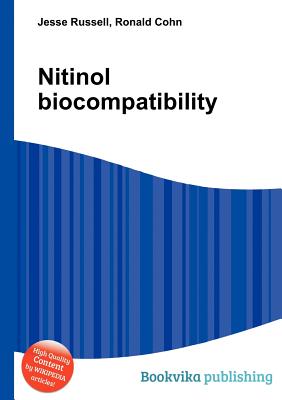
Nitinol Biocompatibility
Paperback
Currently unavailable to order
ISBN10: 5512198246
ISBN13: 9785512198247
Publisher: Book On Demand Ltd
Published: Jan 27 2013
Pages: 140
Weight: 0.39
Height: 0.30 Width: 5.83 Depth: 8.27
Language: English
ISBN13: 9785512198247
Publisher: Book On Demand Ltd
Published: Jan 27 2013
Pages: 140
Weight: 0.39
Height: 0.30 Width: 5.83 Depth: 8.27
Language: English
High Quality Content by WIKIPEDIA articles! Metal implants containing a combination of biocompatible metals or used in conjunction with other biomaterials are often considered the standard for many implant types. When materials are introduced to the body it is important not only that the material does not damage the body, but also that the environment of the body does not damage the implant. One method that prevents the negative effects resulting from this interaction is called passivation. Passivation is a process that removes corrosive implant elements from the implant-body interface and creates an oxide layer on the surface of the implant. The process is very important for making biomaterials more biocompatible. The following investigation will examine passivation as it relates to NiTi, nitinol, a commonly used biomaterial especially in the development of stent technology.


 Sign-In
Sign-In Cart
Cart